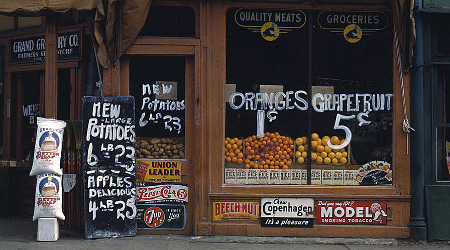Shopping For Food On A Budget

In today's economy it is important to cut costs wherever possible which sometimes means going without and sacrificing those things you enjoy. One of the easiest things to do save money is to reevaluate how you purchase food for your family and start shopping for food on a budget. This might require some sacrifice but more often than not smart shopping, including price matching and coupons, can make all the difference. The key is to maximize limited financial resources and get the most for your money when shopping for food.
The first step to consider when shopping for food on a budget is what exactly does a food budget entail and what is necessary to implement a food budget successfully. It is most simplistic form a budget is simply a fixed amount of money to be spent on predetermined items. What this means is that a budget essentially rules out spontaneous or spur of the moment purchasing of unnecessary items. So when shopping for food on a budget it is important to have a specific list of what will be purchased to fulfill the families food needs. This will often require the additional step of planning meals because without knowing what is going to be made it's hard to know what you should buy.
When budgeting for food is important to prioritize purchases based on level of importance and daily use. This will normally require breaking down purchases into three distinct categories. The first category is normally referred to as "staples" which can be thought of as the basic commodities by which all other products are made. Staples normally include salt, sugar, rice, milk and meat. Basically, without staples it is difficult to make anything else with regards to meals. The second category is food items which are necessary to prepare well-balanced nutritional meals. These items include fruits and vegetables, cereals, bread, and items the family needs for breakfast, lunch and dinner. The final category, and therefore least important, are items purchased specifically for personal pleasure such as deserts and snacks. In a perfect world consumers would never purchase items from the final category since not only do they tend to cost more but they are also usually the most unhealthy.
Once you have a good understanding of what food items you'll be shopping for with regard to your budget it is time to hit the store. Because you have a list of what you will be purchasing you should be able to save money by buying items which are already accounted for in meals. Superfluous items which peak your interest will inevitably ruin the budget and result in spending much more than originally planned. The use of price matching among various retailers can result in significant savings as you can shop at one store to get the benefit of lower prices from that store's competitors. At the same time you can use online or store coupons to reduce costs further. Keep in mind that coupons are often offered as an incentive to purchase products you may not normally be interested in. Only purchase products which are on your list and use coupons when the opportunity presents itself.
As you can see, shopping for food on a budget is easier said than done and it will take practice and determination to glean the most benefit. Impulse control and willpower are required to stick to any budget but even more so with regards to shopping for food. Sticking to a list of items required for preplanned meals and avoiding impulse buys while walking down the aisle will result in significant savings. Don't go food shopping when you're hungry and don't buy things you don't need and you'll have more money left over at the end of the month. You can still eat healthy and treat yourself periodically but the key is moderation when shopping for food on a budget.







